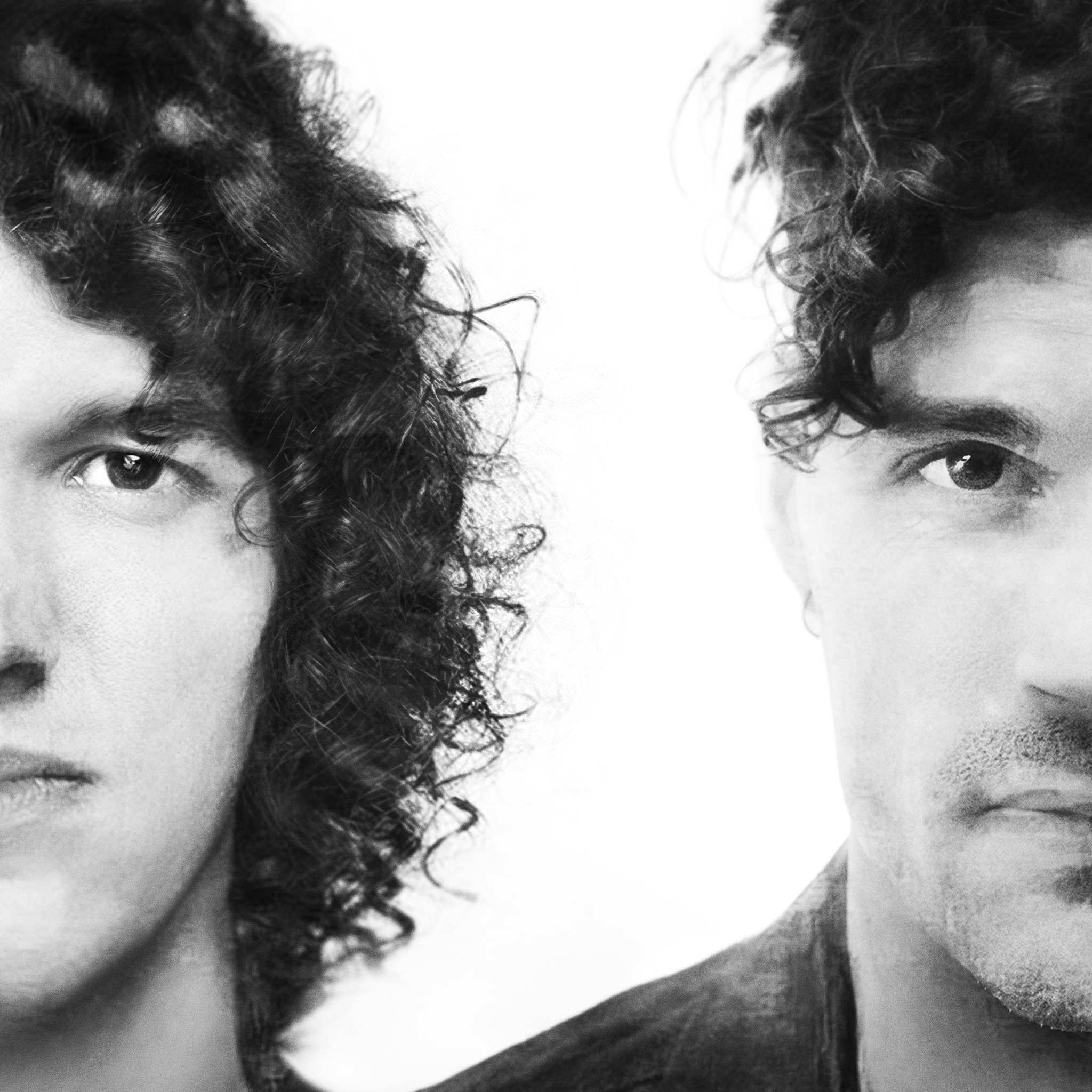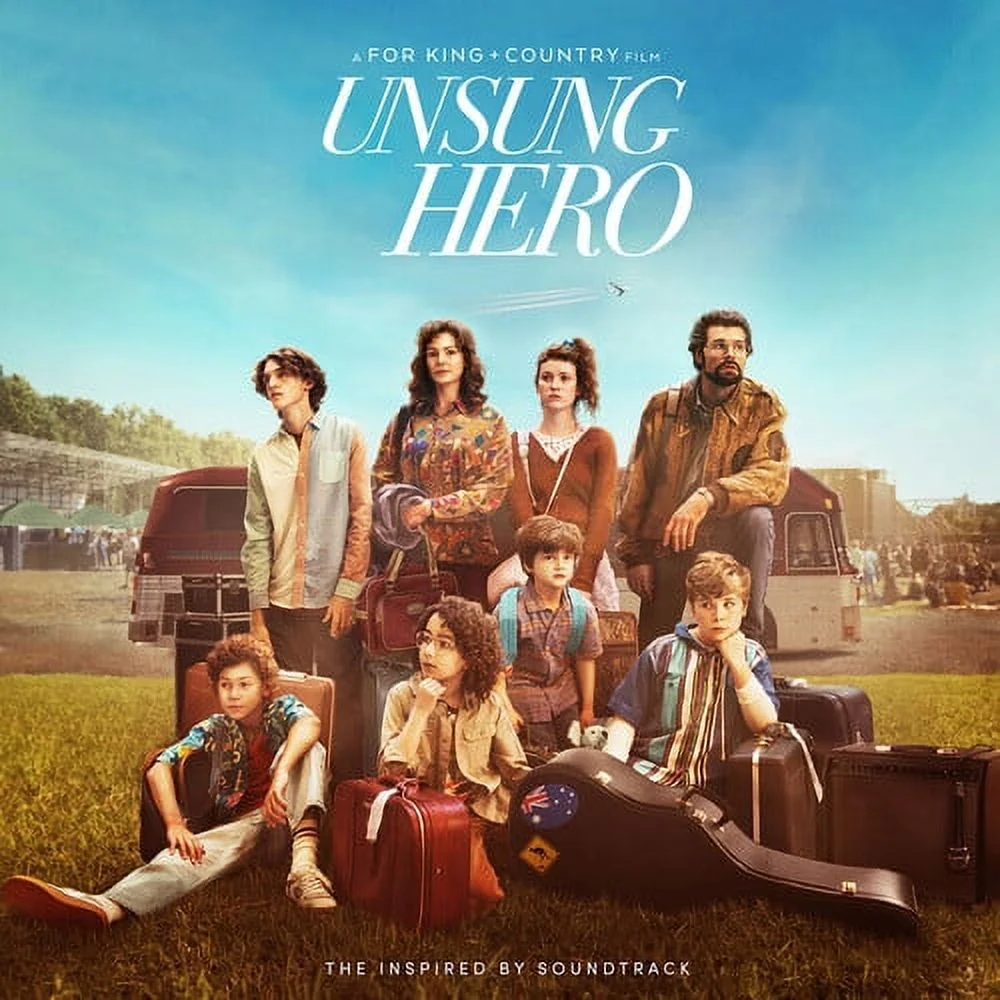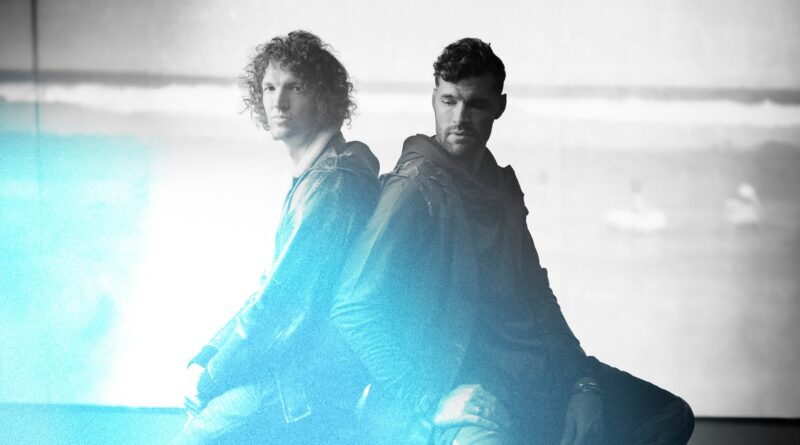Their Place In This World: A Conversation With For King + Country’s Luke Smallbone
Luke and Joel Smallbone of For King + Country find themselves in rare air these days.
The four-time Grammy award winning duo are not only the recognizable leaders of one of the largest Christian music groups in the world, their influence and impact has grown well beyond the stage to heights in which few in the industry ascend.
Their latest venture? The big screen. Last spring, “Unsung Hero,” a new biopic film about the Smallbone family’s immigration from Australia to the United States, was released nationwide to resoundingly strong reviews. The accompanying “The Inspired By Soundtrack” album was tremendously received as well, with its re-imagined versions of “Place In This World,” “Checking In,” and even Stryper’s “To Hell With The Devil (Rise),” which also featured Christian hip-hop artist Lecrae.
Audiences will have the chance to hear some of that new music (as well as the hits) this weekend when the duo bring their “The Unsung Hero 2024 Tour” to Wells Fargo Arena in Des Moines on Saturday, Oct. 5.
Luke Smallbone sat down with ListenIowa to talk about the new tour, the music, and the purpose behind it all.
It’s early in the tour, Luke. When you’re onstage in these first few shows, are you taking mental notes as to what’s working, what isn’t, etc.?
What’s funny about doing these shows for the first few times, is that your brain is thinking so much that when the show is over, it feels like you’ve played eight songs, when in reality you’ve played over two hours worth. You’re just thinking so much about where you have to be, what’s coming next, what’s this next talk about, what connected with the audience, what didn’t, making mental notes. It’s almost like a microchip that’s overheating sometimes.
But when it all comes together, that has to be a good feeling up there to see your work pay off.
Yeah, but ultimately the success of each night is determined by how people feel when they leave. We can have everything go perfectly well from our viewpoint, but it’s the comments from the people afterward that we pride ourselves on.
You guys have always had a strong visual aspect to your live shows, and I imagine you’ve got some cool things up your sleeves on this tour, too.
Oh, man, this is the most technologically advanced, most difficult, most insane setup we’ve ever done. For a number of years, we’ve done this kind of physical automation stuff where you have these elevators that go up and down, or at Christmas-time we had this kind of a chandelier that hung in the middle of arenas. Well, this time, we had this idea of, what if we had these pods onstage, and every one of them moved, and they would actually be the band risers. The drummer, for example, is always attached to the ceiling. He could be hanging 20 feet in the air. It’s extremely technical. The possibilities are almost endless. I think we might live in this universe for the next few years. (Laughs)
Is there an endpoint to that, though, Luke, where you step back and think, “Hey, we can’t have TOO MUCH of the visual element, and the focus needs to stay on the music and the message?”
That’s a great question. I think that’s the way it is, no matter if you’re having a lot of bells and whistles or not. You still have to come back to connecting with the people. That was actually the fear with this — are we being a little bit too technical or fancy? When you go to a big show, people want something fantastic and interesting, but you can’t do that for two hours straight or it starts to go over people’s heads. There’s a balance in that, and you’re exactly right, it’s something we’ll be working on in the coming days. Technology and production is a Ferrari. A Ferrari can go slow, and it can go fast; you just have to determine how to use it.
You guys were in Forbes magazine recently, which is cool. You’re everywhere. You’ve got the big arena shows, huge videos, albums, radio play. Do you ever allow yourself to stop and soak in all that is happening here?
You take it as encouragement, but you have to be real careful with it, too. When things start to go your way, you’ve got to be very careful that you don’t think that you’ve actually “arrived.” You’re just like anyone else in search for a little bit of hope, meaning and purpose. If you think you’ve arrived, all of those things start to fade in the background and aren’t as potent or important. We’ve had songs that have been written and done well, but that’s in the past. I’m always thinking, “What’s the next thing?” But there’s also a challenge, like you’re saying, in that you have to learn to be content. You can’t be running around with your head cut off trying to find the next thing all the time. There are times to be still, and I think that in some cases that’s a lifelong struggle here on Earth, trying to figure out the right amount of busy-ness, and the right amount of settle-ness. We’re doing our best to try and navigate that.
And you guys also dipped your toes into another medium, movies, with “Unsung Hero.” How hands-on were you with that?
Oh, man, I was the one who called the producer in Los Angeles, Joel directed and acted in it, and we were a part of writing the scripts. We dabbled in movies in 2016 with a movie called “Priceless.” Movies are really, really hard work, but if you’re crazy enough to do one, you should probably do another. (laughs) I called a producer friend of mine and said, “Hey man, I’ve got this idea. I’ve told our family story from stage for years, and it impacts people. The story is about our parents. What do you think about making a movie about them and their journey?” I figured I would get a, “Yeah, maybe. Let’s keep talking about it.” Instead, it was like, “Yeah, let’s do it. When can we get together to strategize and make this happen?” And that was a little shocking to me. Hollywood puts thousands of movie into development and only a few get made. So our vision for the movie was this: Mother Theresa once said, “If you want to change the world, go home and love your family.” I think people are overthinking what it takes to impact their community. My hope is that they’ll watch this movie and realize that the kind of husband or wife they are, or parent, or member of the community, it can have a lasting impact. That was really the blueprint or hope for the film.
In the accompanying soundtrack, you worked with some other artists on some re-imagined versions of songs. I found your version of Stryper’s “To Hell With The Devil” an interesting one, including the video where you guys dressed up in the yellow and black stripes and got to be a heavy metal band for a few minutes (laughs). Are you guys closet Stryper fans?
(Laughs) Our dad grew up bring Stryper to Australia. They were renegades, and always have been. I can appreciate who they are and what they do. Music can be challenging at times. I remember when we did a cover of “Go Tell It On The Mountain” for a Christmas project. I didn’t even like the song. It was annoying and sounded like a nursery rhyme. (Laughs) But, when someone asked, “But can you make it cool?” It was like, “Oooooh. That kind of makes me interested.” When you take something everyone already knows, can you make it interesting? “To Hell With The Devil,” that really worked for that late ‘80s time frame. But can we still have a song that has that aggressive of a message? Can we make that work today? I hope the answer is “yes.” You kind of have to go on kind of a journey with it, getting all the partners involved, like Lecrae. I thought it turned out to be something really interesting and unique. I think that’s what albums we’ve been inspired by enable you to do — take some risks. And that was one of them.
Any other high points on the album?
I think “Place In This World” by Michael W. Smith is a world-class song. I’m not saying our version, per se, but that song he wrote 34 years ago that, I don’t care where you are in life, it’s a potent, powerful song. We are really proud of that.
Metallica, because of their immense popularity now, while they’ve stayed in their lane musically, they’ve also become this philanthropic machine, giving back millions of dollars to various charities and organizations. You guys aren’t quite to that level yet, but are you guys involved in any “behind the scene” charitable causes as well?
For the last 13 years, we’ve taken a minute in the middle of the show to talk about a non-profit organization called “Compassion International.” They believe that the next generation, even in impoverished nations, is the future of the world. You’re going to find your next scientists, doctors, politicians there. The problem is, they need a chance to flourish, an education. It’s funny that in America, education isn’t necessarily the way out of poverty, but in the third world, it’s the only way. My point is, here, education is so accessible. If you have an idea, you can go do it. In a third-world country, if you don’t get at least a certain level of education, it is fundamentally impossible to get out of your impoverished state. We’ve been a part of getting 75,000 kids sponsored to give them an education, health care, and a chance. It’s been such a serious thing for us. It’s not something we stumbled on late in our career, it’s something we built our career on.
There is — and always has been — a larger picture behind all of this, is what you’re saying.
Oh, man, I’m not ashamed to say that I’m a Jesus follower. He provides us an ultimate hope. I think that if you look at what the world is searching for — meaning and purpose — as a Christian, that’s my answer. That’s what I write songs about. Every song is written through that lens. Making a good living, that will all burn one day. You don’t get to take that stuff with you. It’s about all of the other things you do, the legacy you leave, and where you’re pointing people. Those are the things I think are far more important.
For King + Country
Saturday, Oct. 5
Wells Fargo Arena, Des Moines
7 p.m.


